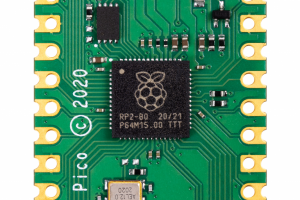
In the next five years microcontroller CAGR is put at 4.6% to reach $19.8bn in 2018.
The principal reason for MCU growth is a strong recovery in the smartcard market. Smartcard MCU sales fell 12% in 2013 but are now on track to grow 19% in 2014.
IC Insights’ Aldo thinks internet of things (IoT) and wearables will push this market.
In unit terms, After declining 7% in 2013, worldwide microcontroller shipments are now forecast to climb 12% in 2014 and reach a new record-high 18.1 billion units this year, thanks to a strong rebound in 8-bit and 32-bit smartcard microcontrollers for electronic banking, automatic teller machines (ATMs), secure credit and debit cards, mass-transit fares, government IDs, and security applications.
Smartcard MCUs represent nearly half of all microcontrollers shipped worldwide but generate less than 20% of the total dollar sales volume due to their ultra-low average selling price.
IC Insights’ forecast shows smartcard MCU shipments rising 20% in 2014 to 8.7 billion units after a 23% drop in 2013.
The rest of MCU units – serving a wide range of embedded functions in systems – are forecast to increase 6% to 9.4 billion devices in 2014 after rising 12% in 2013.
Overall, an explosion of 32-bit microcontroller shipments is reshaping the market as suppliers aggressively promote more powerful MCU designs that are cost competitive with 8-bit and 16-bit devices.
In some cases new 32-bit MCUs are being priced well under $1, in high-unit volumes, and below the cost of 8-bit microcontrollers.
Between 2013 and 2018, total 32-bit MCU sales are expected to grow by a CAGR of 9.5%, reaching $11.0bn in 2018.
Four-bit and 8-bit MCU sales are forecast to fall by a CAGR of 1.3% to $3.7bn in 2018, while 16-bit revenues will barely grow at an annual rate of 0.3%, remaining at $4.2bn in five years.
 Electronics Weekly Electronics Design & Components Tech News
Electronics Weekly Electronics Design & Components Tech News



